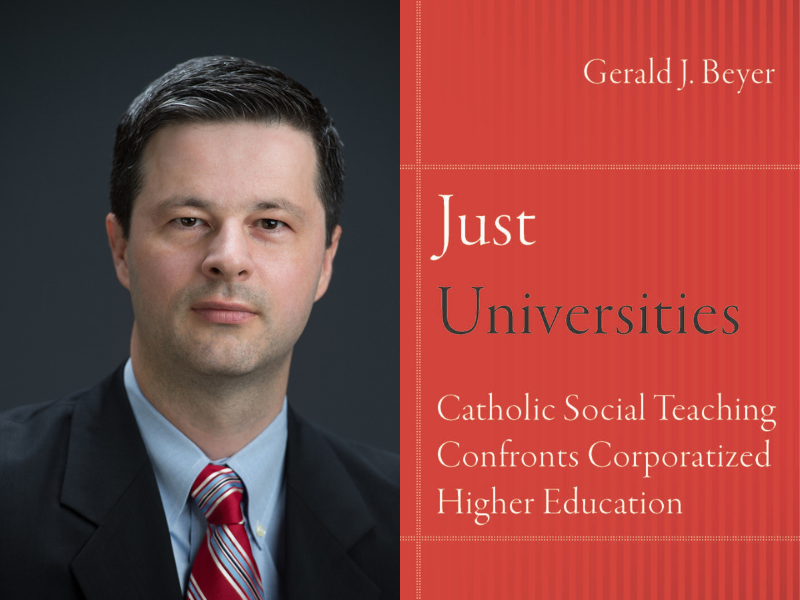Theology Professor’s New Book Addresses How Catholic Universities Can Create Environments More Conducive to Catholic Social Teaching

VILLANOVA, Pa. – At a time when campuses across the country are reckoning with their histories of inequality, a new book by a Villanova University professor discusses ways that US Catholic institutions of higher education have embodied—or failed to embody—Catholic social teaching in their campus policies and practices.
In Just Universities: Catholic Social Teaching Confronts Corporatized Higher Education (Fordham University Press, 2021), Gerald Beyer, PhD, associate professor of Theology and Religious Studies in Villanova University’s College of Liberal Arts and Sciences, argues that what he calls the “corporatization” of the university has affected US higher education in a number of ways—hindering the ability to create an environment imbued with principles of Catholic social teaching such as respect for human rights, solidarity, and justice.
Some of the topics Dr. Beyer explores include just wages, the status of adjunct faculty, unionization of faculty, institutional financial investments, environmental and climate justice, and issues of inclusion based on race, gender, sexual identity, and class, among others.
“Just Universities is a must-read for all engaged in these critical issues,” says reviewer James A. Donahue, PhD, president of St. Mary’s College of California. “Beyer presents a remarkable analysis of the relationship between Catholic institutions of higher education and Catholic social teaching that will set the framework for all future explorations of the relationship between these two realms of the Catholic experience and tradition.”
An expert in the field of Christian ethics, Dr. Beyer is also the author of Recovering Solidarity: Lessons from Poland’s Unfinished Revolution (University of Notre Dame Press, 2010). He has published numerous articles in academic journals as well as in America, Commonweal and National Catholic Reporter. He is associate editor of Horizons: The Journal of the College Theology Society. He received his doctorate from Boston College.
About Villanova University’s College of Liberal Arts and Sciences: Since its founding in 1842, Villanova University’s College of Liberal Arts and Sciences has cultivated knowledge, understanding and intellectual courage for a purposeful life in a challenging and changing world. With more than 40 majors across the humanities, social sciences and natural sciences, it is the oldest and largest of Villanova’s colleges, serving more than 4,500 undergraduate and graduate students each year. The College is committed to a teacher-scholar model, offering outstanding undergraduate and graduate research opportunities and a rigorous core curriculum that prepares students to become critical thinkers, strong communicators and ethical leaders with a truly global perspective.
